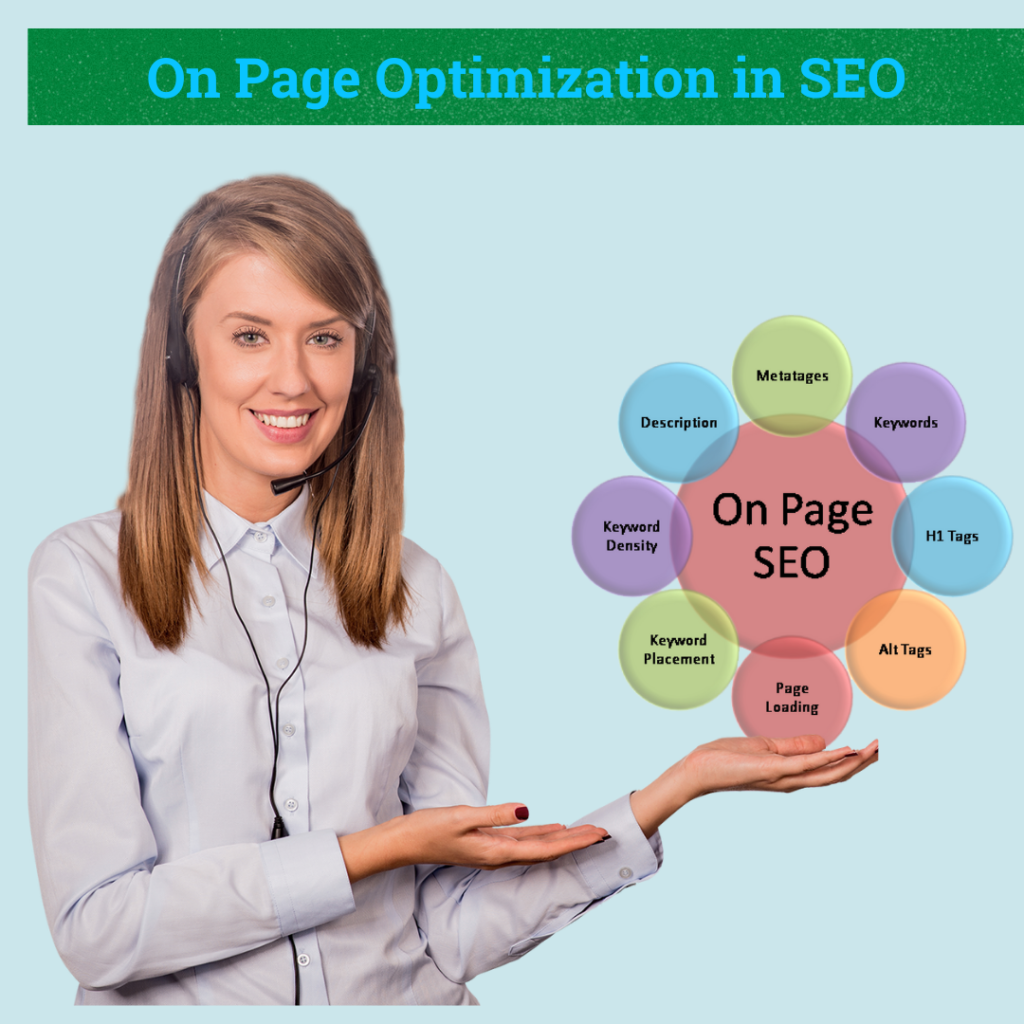On-page SEO is essential for search engine optimization (SEO) since it helps Google determine the purpose of each piece of content on your website. If Google can understand your content quickly then there will be higher chances to rank your site, which equals more organic visitors, conversions, and money. If you do on-page optimization correctly so It will increase user experience. All On-Page optimization factors are covered; I’ll show you how to execute the most crucial page-specific optimization best practices and why they’re essential to your overall SEO strategy.
What is on-page optimization in SEO?
On-page SEO is optimizing web pages for search engines and people to boost a website’s rankings on SERP also, it generates organic traffic. On-page optimization grows up your page ranking search engines such as Google, Bing, and other search engines by creating your website more beneficial to users. Optimizing your page’s headlines, title, Meta description, and images is a component of on-page SEO.

Why is on-page SEO important?
On-page SEO is crucial because it aids search engines in understanding your website and its content and demonstrating whether it is suitable for a searcher’s problem. High search rankings, more visitors, and more conversions benefit from on-page SEO.
On-page SEO takes time to display results, but it can skyrocket your online rank once done. If you put work into On-page techniques then you’ll see an increase in traffic and your search presence. This blog will lead you through the most critical parts of on-page SEO.
Focusing on these areas can help you boost your rankings, traffic, also conversions.
What all ranking factors should I optimize?
You have several ranking components when it comes to on-page SEO. It would help if you focused on the optimization of these components. Spending time to develop these components can grow up your search engine rankings also, make your website more competitive and challenging to defeat.
The following on-page optimization factors:
Title tag
Meta Description
Heading Tags
Boost Your Page Speed
Valuable Content
Structured data (schema)
Alt Tag
Mobile-friendliness
Meta Title Tag
Google requires knowing what your page is about to show it in search engine results pages (SERPs). Search engine crawlers can better understand your website if you use your focus keyword in the title tag of each page.
For instance, if you want to target the keyword “Digital marketing services,” you could use the title tag “Best digital marketing services | Company Name.” The recommended title tag length is 55-60 characters.
Meta Description
A Meta description is an HTML element that gives a brief web page description. The Meta description is a short article up to 155-160 characters. Add your focus keyword in the Meta description to better understand the search engine’s crawler.
According to search engines, the Meta description has no direct SEO value, and it isn’t used in their ranking system. However, there is an unintended benefit: The click-through rate (CTR) is a metric used by Google to determine whether you’re a good result. If more people click on your web page so Google will recognize you as a good result and rank you higher — based on your position.
Heading Tags
On a webpage, heading tags separate headings and subheadings.
They are ranked from H1 to H6, with H1 usually serving as the title. A web page’s readability and SEO benefit from header tags.
For example, a post about digital marketing may use the following headings:
What is Digital Marketing?
Best Digital Marketing Services in Indore.
Benefits of digital marketing.
Improve Your Page Speed
Page speed estimates how speedily your page’s content loads. Users are concerned about page speed as faster pages are more potential and give a better on-page user experience. Page speed has an impact on SEO. As Google’s Algorithm page Speed Update has clarified, page speed is a straight ranking element. When it comes to assessing the complete user experience on your site, Google Page Speed Insights is currently fairly dependable and accurate.
Valuable Content
Powered-up content is valuable content. Content with a greater purpose is beneficial for a particular audience; this can give your potential customers a better experience also, it attracts them to return for more. Google wants to offer users high-quality content that solves their problems. It would help if you had a goal in mind when creating content, and also, Clients, visitors, and users must benefit from your content.
Alt Tag
The ALT tag on a Web page passes a text description to an image. An alt tag, also called “alternative text” or “alt description,” is an HTML attribute. This attribute is applied to image tags to give search engines a text alternative.
If an image is not viewable then search engine crawlers may speedily demonstrate what the image is all about by reading the alt text.
Structured data
Structured data represents your website so that search engines can better perceive it. In SEO, we use the Schema.org model to analyze structured data, which converts your content into code that they can understand. The code is read by search engines, displaying search results in a more targeted and detailed manner.
Mobile-friendliness
Today, everyone has a mobile, so it is vital to develop a mobile-friendly website, as more than 50% of internet traffic comes from mobile devices. If individuals using smartphones and tablets cannot access your site, your search engine rankings will suffer. Mobile-friendliness is a ranking norm used by search engines such as Google. You’re losing out on critical leads if your site isn’t mobile-friendly. The focus of on-page optimization for mobile-friendliness is often to develop a responsive site.
Conclusion
Optimizing web pages for specific keywords to grow search visibility and traffic is known as On-page SEO (or on-site SEO). It involves matching keywords to page-specific elements, including title tags, headers, content, and internal links. On-page SEO is essential for increasing the possibilities of your website showing in search results. Optimizing for on-site attributes regularly will help you improve your rankings, traffic, and conversions.
